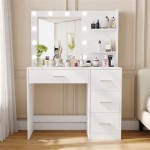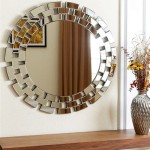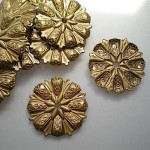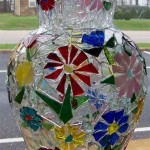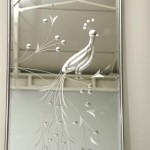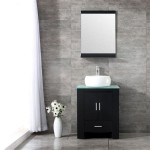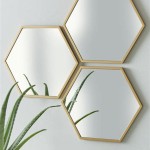Mirrors in Bedroom: Superstition
Mirrors, ubiquitous in modern life, serve practical and decorative purposes. However, their reflective nature has also imbued them with symbolic meaning across cultures, giving rise to various superstitions. One prominent belief concerns the placement of mirrors in bedrooms, a practice often discouraged by traditional beliefs.
One of the most prevalent superstitions surrounding bedroom mirrors involves sleep disruption. Some believe that a mirror reflecting the bed can amplify negative energy, leading to insomnia, nightmares, or restless sleep. This notion stems from the idea that mirrors act as portals, potentially attracting or amplifying unseen energies or spirits that can interfere with sleep.
Another explanation for this belief draws on the concept of the soul. In some cultures, the soul is believed to leave the body during sleep. A mirror reflecting the sleeping person might confuse the returning soul, preventing it from re-entering the body and resulting in disturbed sleep or even illness.
The superstition also connects mirrors to the amplification of anxieties and worries. Seeing one's reflection while trying to fall asleep can trigger a heightened awareness of self, potentially magnifying existing concerns and making relaxation difficult. This can be particularly problematic for individuals prone to anxiety or overthinking.
Feng Shui, an ancient Chinese practice focused on harmonizing individuals with their environment, also advises against placing mirrors in bedrooms. Mirrors are considered to be active energy, which can disrupt the calm and restful atmosphere ideal for a bedroom. They can bounce energy around the room, disturbing the flow of chi and creating an environment less conducive to restorative sleep.
The belief that mirrors can attract negative energy extends beyond sleep disruption. Some believe that mirrors facing each other in a bedroom can create a vortex of negative energy, amplifying negativity within the room. This positioning is thought to disrupt the balance of the space, potentially leading to arguments, unrest, and general misfortune.
Furthermore, the reflective quality of mirrors is associated with doubling. While this can be interpreted positively in some contexts, relating to wealth or abundance, in the bedroom, this doubling effect is often viewed negatively. It is believed that a mirror reflecting a couple sleeping can lead to infidelity or the intrusion of a third party into the relationship.
Historically, mirrors were often associated with vanity and self-absorption. Placing a mirror in the bedroom, particularly facing the bed, could be interpreted as fostering these qualities. This belief emphasizes the importance of humility and inner reflection rather than focusing on outward appearances.
The association of mirrors with death also contributes to the superstition. In some cultures, covering mirrors after a death is a common practice. This stems from the belief that the mirror can trap the soul of the deceased, preventing it from moving on to the afterlife. While not directly related to bedroom placement, this association adds to the overall negative connotations surrounding mirrors in sleeping spaces.
Despite the widespread nature of these superstitions, it's important to note that they lack scientific evidence. The effects of mirrors on sleep and well-being are likely subjective and influenced by individual beliefs and psychological factors. Those who are particularly susceptible to suggestion or hold strong beliefs in superstitions might experience negative effects due to the power of suggestion rather than any inherent property of the mirror itself.
The decision of whether or not to have a mirror in the bedroom is ultimately a personal one. While the superstitions surrounding bedroom mirrors are deeply ingrained in various cultures, individuals should consider their own beliefs and comfort levels. If the presence of a mirror causes anxiety or discomfort, its removal can contribute to a more peaceful sleep environment.
Modern interpretations of Feng Shui often offer practical solutions for mitigating the perceived negative effects of bedroom mirrors. These include covering the mirror at night with a cloth or screen, strategically positioning the mirror so it doesn't reflect the bed, or choosing smaller, less reflective mirrors. These measures can allow individuals to incorporate mirrors into their bedroom decor without triggering superstitious anxieties.
The enduring power of superstitions surrounding bedroom mirrors demonstrates the complex relationship between humans and objects. While the beliefs lack scientific basis, they provide insights into cultural values and anxieties surrounding sleep, vulnerability, and the unseen world. Understanding the origins and symbolism behind these beliefs allows individuals to make informed decisions about their living spaces based on personal comfort and cultural understanding.

Why Mirror Facing The Bed Is Bad Feng Shui
Do You Sleep Facing A Mirror Experts Say There Is Science Behind This Feng Shui Belief That Can Help Get Better Night Yahoo Sports

Where To Put Mirror In Bedroom Luxury Art Canvas

28 Superstitious Taboos Wofs Com

The Feng Shui Of Mirror Placement In Your Bedroom City Mattress

Is Mirror Above Bed Good Feng Shui Complete Mirrors In Bedroom Guide

Is It Bad To Sleep With A Mirror In Front Of Your Bed Myth Or Fact Homevib
_0_1200.jpg?strip=all)
How Feng Shui Mirrors Can Change The Face Of Your Bedroom

Is It Bad Luck To Have A Mirror In The Bedroom

Feng Shui Mirror Facing The Bed

